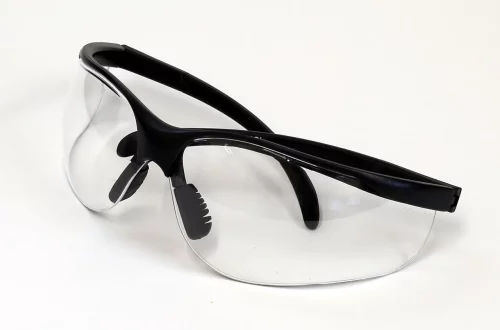
Why Do Dogs Lick Their Paws at Night? Understanding the Behavior
Dogs are beloved companions for millions around the world, providing joy, loyalty, and companionship. However, they can also exhibit a range of behaviors that leave their owners questioning what’s going on in their furry friend’s mind. One such behavior is the tendency of dogs to lick their paws, particularly during the nighttime hours. This habit, while often innocuous, can sometimes indicate deeper issues that warrant attention.
At night, when the house is quiet and the distractions of the day have faded, dogs may engage in certain behaviors that they might not display as frequently during busier hours. Licking their paws can serve various purposes, from self-soothing and grooming to signaling underlying health concerns. Understanding this behavior is crucial for pet owners, as it not only fosters a deeper bond between them and their pets but also ensures that their canine companions are healthy and happy.
The phenomenon of paw licking can be puzzling, with many pet owners wondering if it is merely a quirky habit or a sign of discomfort. By exploring the motivations behind this behavior, we can gain valuable insights into the needs and well-being of our dogs. Let’s delve into the various factors that contribute to this common canine behavior.
Common Reasons for Paw Licking
One of the most prevalent reasons dogs lick their paws is grooming. Dogs are naturally inclined to clean themselves, and licking is a part of their grooming routine. This behavior is especially common after they have been outdoors, where their paws may have collected dirt, debris, or allergens. By licking their paws, dogs remove these unwanted substances and maintain their hygiene.
Another common factor is boredom or anxiety. Dogs are social animals that thrive on interaction and stimulation. When left alone for long periods or when their routine is disrupted, they may resort to licking as a way to cope with their feelings. This licking can become a repetitive behavior, similar to how humans might bite their nails when stressed. If your dog licks their paws excessively, it may be a sign that they need more mental and physical stimulation.
Additionally, allergies could play a significant role in paw licking behavior. Dogs can be allergic to a variety of substances, including food ingredients, pollen, dust mites, or certain chemicals in their environment. When they come into contact with allergens, they may experience itchiness or irritation, leading them to lick their paws in an attempt to soothe the discomfort. Identifying the source of the allergy is crucial for alleviating your dog’s symptoms and preventing further licking.
In some cases, underlying medical conditions may cause dogs to lick their paws. Skin infections, fungal infections, or parasites such as fleas or mites can lead to irritation and discomfort, prompting your dog to lick their paws in an attempt to find relief. If you notice any signs of redness, swelling, or unusual odor, it is important to consult a veterinarian for an accurate diagnosis and appropriate treatment.
The Role of Anxiety and Stress
Anxiety and stress can manifest in various ways in dogs, with paw licking being one of the more subtle indicators of emotional discomfort. Dogs may experience anxiety due to changes in their environment, such as moving to a new home, the arrival of a new pet, or alterations in their owner’s routine. These changes can lead to feelings of insecurity, prompting them to engage in behaviors like licking to self-soothe.
When dogs lick their paws excessively, it can become a compulsive behavior, indicating that they are struggling to cope with their emotions. This is particularly true for dogs that have a predisposition to anxiety or those that have experienced trauma in their past. In such cases, the licking may provide temporary relief from their anxious feelings, but it does not address the root cause of their distress.
To help alleviate anxiety-related paw licking, it is essential to provide a stable and secure environment for your dog. Regular exercise, mental stimulation, and positive reinforcement training can help build their confidence and reduce stress levels. Additionally, creating a safe space where your dog can retreat when feeling overwhelmed can be beneficial.
In some instances, professional intervention may be necessary. A veterinarian or a certified animal behaviorist can provide guidance on effective strategies to manage your dog’s anxiety. This may include behavior modification techniques or, in severe cases, medication to help reduce anxiety levels.
Health Concerns Associated with Paw Licking
While occasional paw licking is generally normal, persistent licking can signal underlying health issues that require attention. One of the primary health concerns linked to excessive paw licking is the potential for infections. When dogs lick their paws frequently, the moisture and irritation can lead to bacterial or fungal infections, which can exacerbate the problem and create a vicious cycle of licking.
In addition to infections, dogs may develop hot spots, which are localized areas of skin irritation that become inflamed and infected due to excessive licking. These hot spots can be painful and uncomfortable for your dog, leading to further licking and potential complications. If you notice your dog developing red, inflamed patches on their skin, it is important to seek veterinary care promptly.
Skin allergies are another common health issue that can lead to paw licking. If your dog is allergic to certain foods, environmental factors, or grooming products, they may experience itchiness and irritation in their paws. Identifying and eliminating the source of the allergy is crucial for alleviating symptoms and preventing further licking.
Furthermore, foreign objects lodged in your dog’s paw, such as thorns or splinters, can cause discomfort and lead to licking as well. Regularly checking your dog’s paws for any signs of injury or foreign bodies is essential for their overall health and well-being.
If your dog’s paw licking becomes excessive or is accompanied by other concerning symptoms, it is critical to consult a veterinarian. They can conduct a thorough examination, perform necessary tests, and provide a tailored treatment plan to address any underlying health issues.
How to Manage and Address Paw Licking
Managing your dog’s paw licking requires a combination of understanding the underlying cause and implementing strategies to address the issue. First and foremost, it is important to observe your dog’s behavior and identify any patterns. Keep track of when the licking occurs, how long it lasts, and any accompanying signs, such as redness or swelling.
If you suspect that allergies are the cause, consider consulting with a veterinarian to discuss potential allergy testing and dietary changes. In some cases, switching to a hypoallergenic diet or eliminating specific ingredients may help alleviate symptoms. Additionally, maintaining a clean environment by regularly cleaning your home and yard can minimize exposure to allergens.
For dogs displaying signs of anxiety or stress, increasing their physical and mental stimulation is crucial. Regular exercise, interactive toys, and training sessions can help keep their minds engaged and reduce anxiety levels. Establishing a consistent routine can also provide a sense of security for your dog, helping them feel more relaxed.
If the licking becomes a compulsive behavior, consider consulting with a professional animal behaviorist. They can provide tailored strategies to modify the behavior and help your dog cope with their emotions in healthier ways. In some cases, implementing calming techniques such as anxiety wraps, pheromone diffusers, or calming supplements may also be beneficial.
Ultimately, understanding why dogs lick their paws at night is essential for maintaining their overall health and well-being. By addressing the underlying causes and providing appropriate support, pet owners can help their furry companions lead happier and healthier lives.
**Disclaimer**: This article is for informational purposes only and does not constitute medical advice. For any health concerns regarding your dog, always consult a qualified veterinarian.




